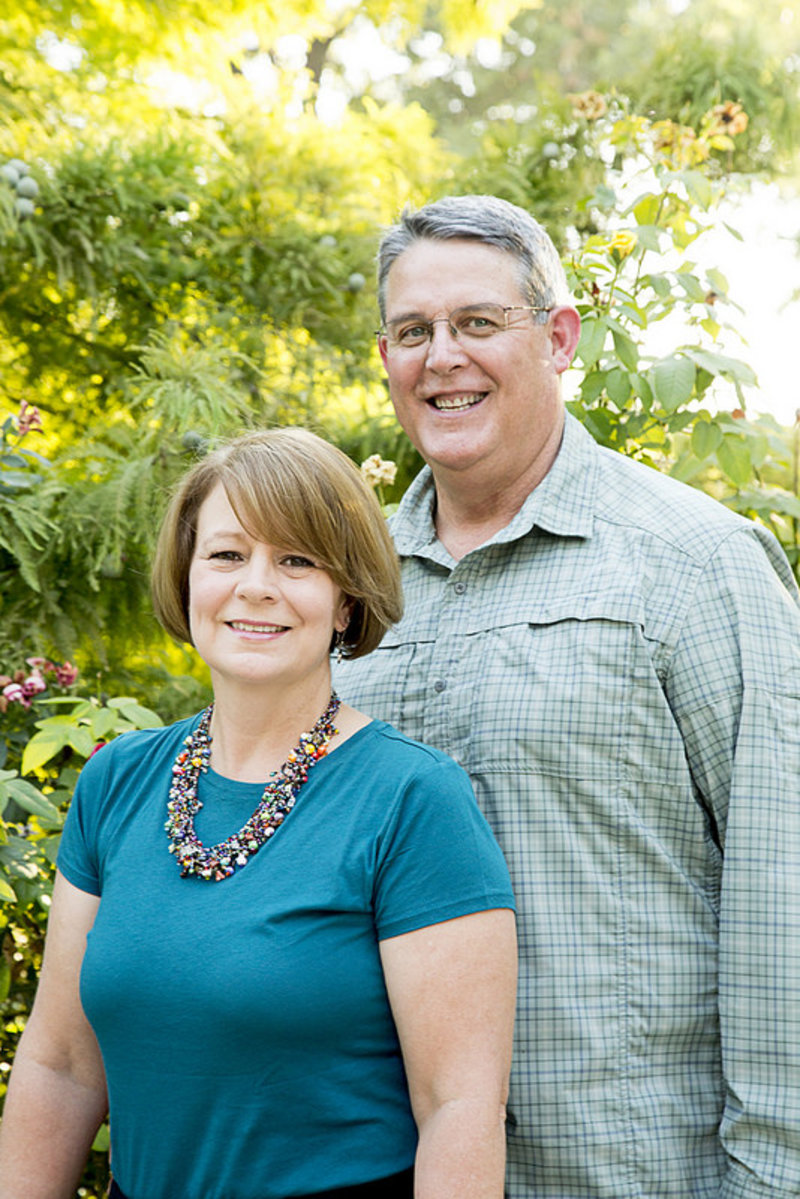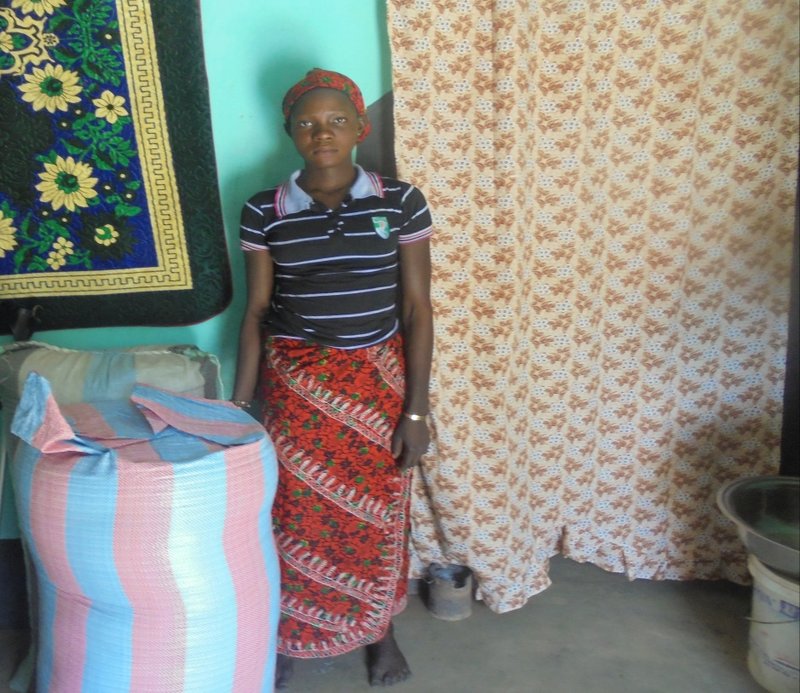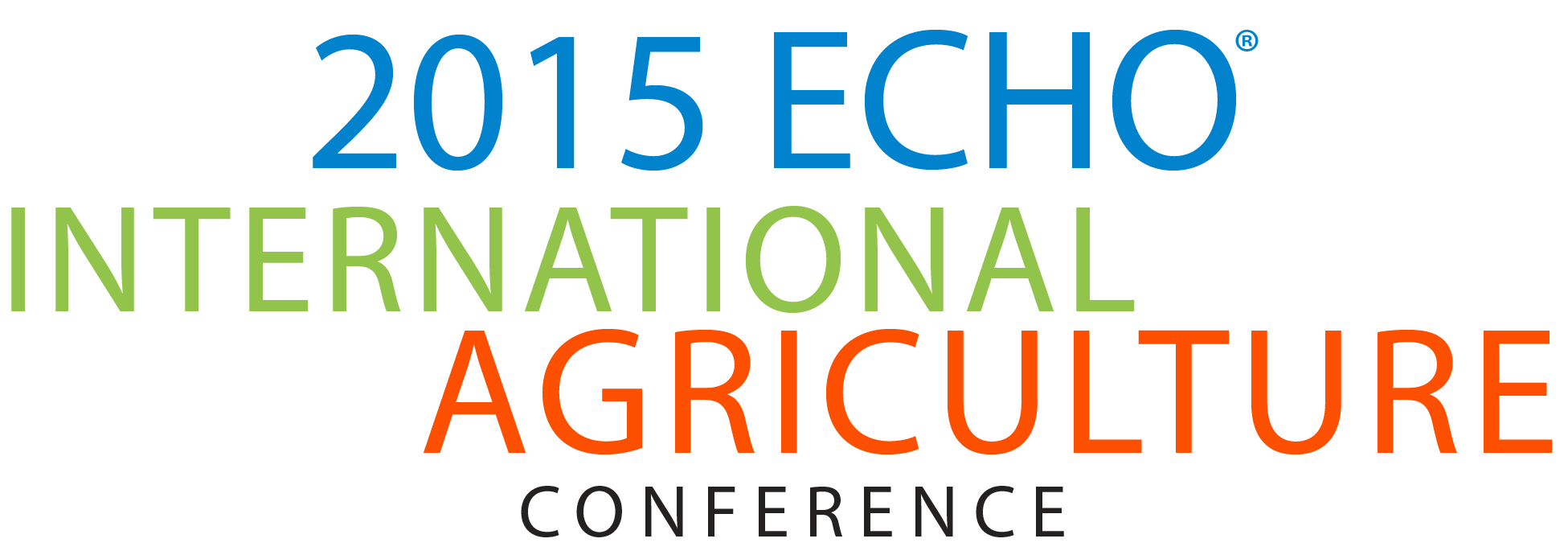ECHOcommunity ការធ្វើឱ្យទាន់សម័យ
ECHOcommunity Member Spotlight: Charles and Melissa Johnson 2015-12-09
My wife, Melissa, and I first learned of ECHO and the training courses offered after we applied for a development position in Zambia with Presbyterian World Mission. Although my background is in agriculture and banking here in the U.S., I wanted to acquire more specific knowledge which would benefit our work in Zambia. Our expectations were exceeded, not only with regard to the course materials, but also with the new friends we made; friends who are on a similar journey.
Beyond the knowledge we’ve gained, we have made friends who we remain in contact with, sharing information, resources and experiences to benefit each other in our work. We are confident our work in Eastern Zambia will benefit from our ECHO experiences.
ECHO is excited to announce the 2016 Training and Events schedule. There are events in Asia, East Africa, West Africa, Central America/Caribbean, and North America.
In addition to our Tropical Agriculture Development: The Basics course, ECHO is pleased to offer three new tropical agriculture workshops for a total of five training opportunities next year.
Workshops, forums, conferences and training opportunities around the world can be found on the ECHOcommunity Calendar. ECHOcommunity members can add their organizations events to the calendar at no charge (some restrictions apply). To submit your event fill out the Contact Form.
Agriculture Extension with Community-Level Workers 2015-11-24
Lessons and Practices from Community Health and Community Animal Health Programs
By: Brian Flanagan as a USAID-funded Modernizing Extension and Advisory Services (MEAS; www.meas.illinois.edu) project
Active learning and exchange of knowledge are key to farmer adoption of beneficial agricultural innovations. Community health worker (CHW) and community animal health worker (CAHW) programs have led to a rich body of knowledge about extension, much of which is applicable to efforts aimed towards small-scale farmers. Drawn from the literature on these programs, this document captures key lessons and practices relevant to developing, implementing, and sustaining effective community agriculture extension endeavors. The objective of this paper is to inform and strengthen agricultural extension programs that provide services through community-level workers.
This paper reviews CHW and CAHW case studies, peer-reviewed articles, guidelines and project reports for purposes of identifying lessons and practices that could enhance the effectiveness of community extension worker programs. Lessons learned, as well as specific ways (practices) to apply those lessons, are identified for each of six developmental stages that the author found were characteristic of successful CHW and CAHW programs and relevant to agricultural community extension. Those six stages are: 1) designing a program, 2) recruiting and selecting of community workers, 3) training of community workers, 4) supervising of community workers, 5) scaling-up programs, and 6) sustaining programs over time. Key lessons and practices for each stage are listed in table form and then elaborated upon in the text.
EDN Issue 129 - Now Available 2015-10-28
In This Issue:
- Permaculture In Development: An introduction to permaculture and its application in agriculture development
- From ECHO's Seed Bank: Inca nut (Plukenetia volubilis)
- Books, Websites and Other Resources (See PDF Version)
Excerpt: Permaculture In Development: An introduction to permaculture and its application in agriculture development
The word permaculture is mentioned with increasing frequency in speeches, books and magazine articles on sustainability and food security. What is permaculture? Is it a movement? A philosophy? Simply a set of design tools?
In this article, I answer the above questions by looking at permaculture from a variety of angles. First, I briefly describe permaculture’s history, underlying ethics, and key principles and common practices. Then I discuss common criticisms of permaculture and explain the underlying perspective that shapes its use in addressing a community’s food, water and shelter needs (i.e., the lens through which a permaculturalist views development). Finally, I share how permaculture has influenced my own life and work, both as a Christian and as an agriculture development worker.
For the full article on Permaculture and how it considers the ecosystem and social system as a whole, facilitating good stewardship, and providing a pathway to true sustainability, resilience and abundance read the full article.
Download and share ECHO Development Note #129
Impact of Foundations For Agriculture in Kouka 2015-10-20
After attending the ECHO conference in 2010, small-scale farmer Emile decided to apply the method of the FFF or FPA (foundations for agriculture). Other farmers in the region socoffed at him for digging holes and planting according to the methods he had learned. However, the surprise of Emile, and other farmers, was great at the harvest: not only its FPA field produced, but also the crops were higher on these fields than those in which he applied his old practices. The entire Kouka farming community took notice, those who scoffed were now asking him about his method.
Network Member Organization Profile: FORRU - Thailand 2015-10-12
As a leader within an international forest restoration network, FORRU oversees four major project sites in Thailand: working with the National Forest and Park service in Northern Thailand, working with bird habitat conservation in Southern Thailand, restoring natural corridors for elephant migration in Kanchnaburi province along the Western border, and forest restoration work in the far North province of Chiang Rai and the future collaboration with Nan province.
FORRU facilitates tropical forest restoration under a framework of conservation and community development. Their research department works with communities to include important Non Timber Forest Products (NTFPs) within the restoration process so that the community can reap financial, nutritional, and cultural benefits from the forest. Staff also work with schools, government offices, and local businesses in order to pursue opportunities for local communities to gain benefits from carbon sequestration, ecosystem services, and the development of native tree nurseries.
Cuban Farmer Builds Resilience With Biodiversity 2015-10-12
In just five short years Arcel Antonio and his wife Marisol have established a farm homestead that gives testimony to the abundance and resilience found in bio-diverse, agroforestry and annual cropping systems. Arcel Antonio explained to visiting ECHO staff that he is able to provide for nearly 100% of his families food needs even in recent times of drought because he has so many crop resources from which to choose.
Latin America and ... Agroforestry Annual Cropping Sy... Natural Pesticides
West African Woman Finds Success With FFF 2015-10-05
Ramata Kindo, 22 years of age, is a young lady living in the rural setting of Kouka. As a woman living in that culture, Ramata Kindo has limited access to and control over any available farmable land. As a result her first obligation is to first work in the family field. If she wants to cultivate her own plot she must officially submit a request to the head of the family for authorization.
ECHO International Agriculture Conference 2015 - Earlybird Pricing 2015-09-09
The 22nd annual ECHO International Agriculture Conference will be held in Fort Myers, Florida, USA from November 17-19. In order to make the conference more accessible to everyone earlybird pricing is available through September 30.
Contribute Audio/Video Resources to the ECHOcommunity 2015-08-21
We have recently been receiving an increase in requests for audio and video training resources, especially for resources in languages other than English. As a community, we have the opportunity to share resources and increase the overall impact of what we produce.
Here is a great example: This video produced by ECHOcommunity member Abram Bicksler, and generously underwritten by Hort CRSP and USAID, demonstrates how to build a low-cost seed germination chamber. The materials and techniques used in this video are readily available across Asia, but can be replicated nearly anywhere.
ECHOcommunity Career Center Opportunity: Lend your skills in Guatemala 2015-08-13
The Farmer-to-Farmer (F2F) program at Partners of the Americas in Washington, DC is a US Agency of International Development (USAID) funded program that promotes economic development and food security abroad by sending volunteer agricultural specialists from the U.S.
Volunteers provide technical assistance to foreign producers, cooperatives, agribusinesses, NGO’s, and educational institutions. Assignment goals vary depending on the needs of in-country host organizations and typically last 2-3 weeks. In appreciation of the volunteer’s service, F2F covers the cost of all assignment-related expenses including travel, food, and lodging.








